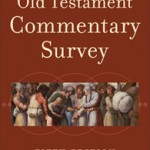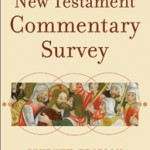On Tuesday the Prince gave us “Seven Qualifications for Soul-Winning – Godward”, those quintessential characteristics God looks for in His servants.
Spurgeon’s next lecture finds him taking up the same them, yet from the “manward” perspective; eight qualities “likely to be approved by the object acted upon, that is, the soul of man.”
There is indeed much crossover with the previous seven qualifications, but the manward qualification poke and prod in unique ways. Here they are with some of Spurgeon’s typical pithiness.
8 MORE QUALIFICATIONS FOR SOUL-WINNING
#1: An ignoramus is not likely to be much of a soul-winner. A man who only knows that he is a sinner, and that Christ is a Saviour, may be very useful to others in the same condition as himself, and it is his duty to do the best he can with what little knowledge he possesses; but, on the whole, I should not expect such a man to be very largely used in the service of God.
#2: There must be about us an evident sincerity. It must be quite clear to your hearers that you have a firm belief in the truths that you are preaching; otherwise, you will never make them believe them. Unless they are convinced, beyond all question, that you do believe these truths yourselves, there will be no efficacy and no force in your preaching. I do beseech you, brethren, speak from your hearts, or else do not speak at all. If you can be silent, be silent; but if you must speak for God, be thoroughly sincere about it.
#3: He must have evident earnestness. If a man is to be a soul-winner, there must be in him intensity of emotion as well as sincerity of heart. What earnestness our theme deserves! We have to tell of an earnest Saviour, an earnest heaven, and an earnest hell. How earnest we ought to be when we remember that in our work we have to deal with souls that are immortal, with sin that is eternal in its effects, with pardon that is infinite, and with terrors and joys that are to last for ever and ever!
#4: He must have an evident love to his hearers. It is very sad when the failure of any ministry is caused by want of heart. Do you not notice that men succeed in the ministry, and win souls for Christ, just in proportion as they are men with large hearts? You must love the people, and mix with them, if you are to be of service to them. There are some ministers who really are much better men than others, yet they do not accomplish so much good as those who are more human, those who go and sit down with the people, and make themselves as much as possible at home with them.
#5: He must have evident unselfishness. A man ceases to bring men to Christ as soon as he becomes known as a selfish man. What are you, my dear brother, that people should all bow down and worship you, and think that in all the world there is none beside you? I tell you what it is; the less you think of yourself, the more will people think of you; and the more you think of yourself, the less will people think of you. If any of you have any trace of selfishness about you, pray get rid of it at once, or you will never be fit instruments for the winning of souls for the Lord Jesus Christ.
#6: He must have holiness of character. When people see that we not only preach about holiness, but that we are ourselves holy men, they will be drawn towards holy things by our character as well as by our preaching.
#7: He must have a seriousness of manner. The most of us, however, are far more inclined to that laughter which doeth good like medicine, and we shall need all our cheerfulness, if we are to comfort and lift up those who are cast down; but we shall never bring many souls to Christ, if we are full of that levity which characterizes some men. There must be a prevailing seriousness about our whole lives, otherwise we cannot hope to lead other men to Christ.
#8: He must have a great deal of tenderness. I like a man to have a due amount of holy boldness, but I do not care to see him brazen-faced and impudent. When you preach, speak out straight, but be very tender about it; and if there is an unpleasant thing to be said, take care that you put it in the kindest possible form.
I believe, brethren, that soul-winning is to be done by men of the character I have been describing; and most of all will this be the case when they are surrounded by people of a similar character. You want to get the very atmosphere in which you live and labour permeated with this spirit before you can rightly expect the fullest and richest blessings. Therefore, may you and all your people be all that I have pictured, for the Lord Jesus Christ’s sake! Amen.











